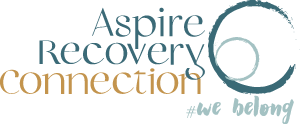Recovery from physical or mental health challenges can be a complex and often overwhelming journey. The National Disability Insurance Scheme (NDIS) recognizes the importance of holistic support for individuals seeking to regain their well-being and resilience. NDIS recovery coaching is a specialized service that plays a pivotal role in helping participants navigate this path to recovery. In this blog, we will explore the significance of NDIS recovery coaching, its key principles, and how it empowers individuals to embrace wellness and a brighter future.
Understanding NDIS Recovery Coaching
NDIS recovery coaching is a person-centred and strengths-based approach that supports participants in their journey toward improved health and well-being. It is designed to empower individuals with disabilities to take control of their lives, set goals, and develop strategies to overcome obstacles. Here are some core components of NDIS recovery coaching:
- Person-Centred Approach: Recovery coaching is centred around the individual’s unique needs, goals, and aspirations. It respects the participant’s autonomy and empowers them to make informed choices.
- Strengths-Based: Recovery coaching focuses on identifying and harnessing the participant’s strengths, skills, and resources to facilitate recovery and resilience.
- Collaboration: Recovery coaches work collaboratively with participants to co-create a recovery plan that aligns with their values and preferences.
- Goal-Oriented: The coaching process involves setting and working toward specific, achievable goals related to health, well-being, and life satisfaction.
- Support and Encouragement: Coaches provide emotional support, encouragement, and guidance as participants navigate the ups and downs of their recovery journey.
- Self-Advocacy: Participants are encouraged to become advocates for their own health and well-being, learning to communicate effectively with healthcare providers and access necessary services.

The Benefits of NDIS Recovery Coaching
- Empowerment: Recovery coaching empowers individuals by giving them the tools and skills to take charge of their health and recovery. It fosters a sense of agency and control over one’s life.
- Holistic Support: It addresses all aspects of a person’s well-being, including physical, mental, emotional, and social dimensions. This comprehensive approach enhances overall quality of life.
- Resilience-Building: Recovery coaching helps participants develop resilience, enabling them to bounce back from setbacks and face challenges with greater strength and determination.
- Increased Self-Awareness: Participants gain a deeper understanding of themselves, their values, and their priorities, which can lead to more meaningful and purposeful lives.
- Community Integration: Recovery coaching supports participants in reconnecting with their communities and building social connections, reducing feelings of isolation.
- Goal Achievement: Through a structured approach to setting and pursuing goals, individuals can make tangible progress in their recovery journey.
How NDIS Recovery Coaching Empowers Individuals
- Self-Advocacy: NDIS recovery coaching equips participants with the skills and confidence to advocate for themselves within the healthcare system, ensuring they receive the appropriate care and support.
- Improved Decision-Making: Coaching helps individuals make informed decisions about their health and well-being, leading to better choices and outcomes.
- Enhanced Coping Skills: Participants learn effective coping strategies to manage stress, challenges, and setbacks in their recovery journey.
- Greater Resilience: By building resilience, individuals become better equipped to face life’s difficulties and maintain their well-being in the long term.
- Hope and Optimism: NDIS recovery coaching fosters a sense of hope and optimism, even in the face of adversity, helping individuals envision a brighter future.
NDIS recovery coaching is a vital service that empowers individuals with disabilities to navigate their journey toward wellness and resilience. By embracing a person-centred, strengths-based approach, recovery coaching equips participants with the skills, knowledge, and support they need to take control of their health and well-being. It encourages self-advocacy, fosters resilience, and promotes a brighter, more fulfilling future. In a world that often presents significant challenges, NDIS recovery coaching serves as a guiding light, helping individuals find their path to wellness and renewed hope.
Danielle Bament


Recent Comments